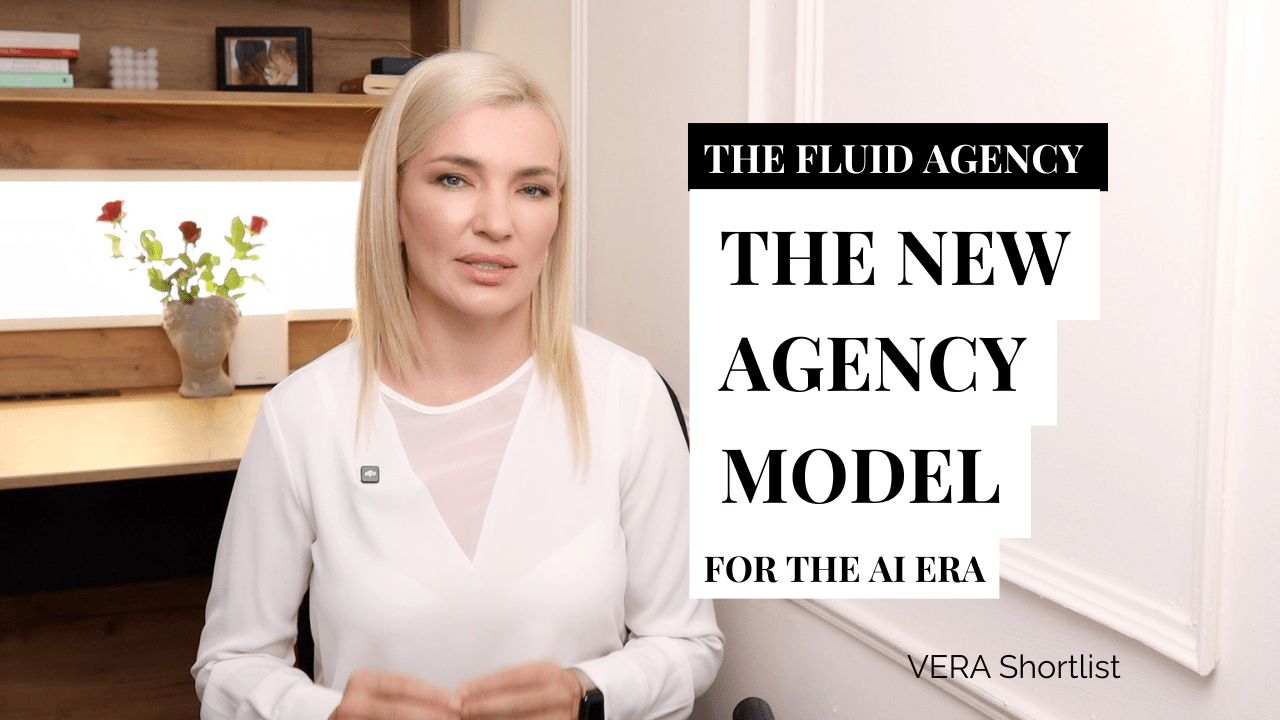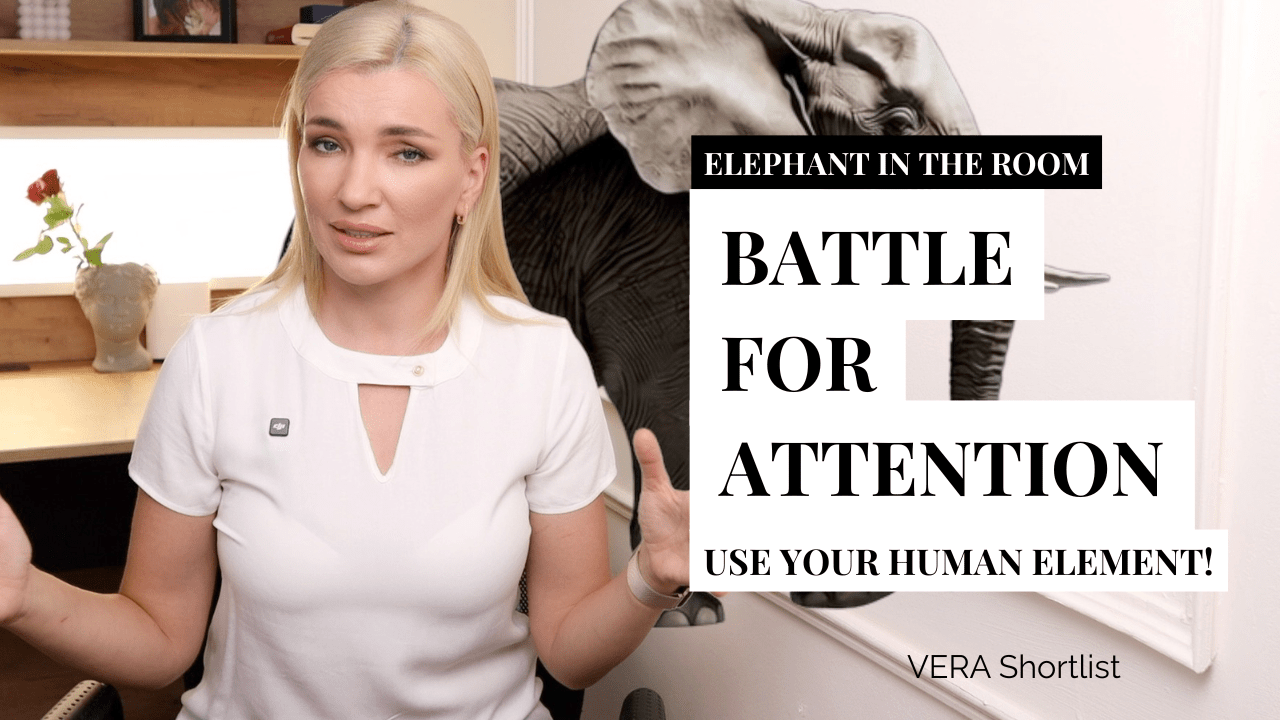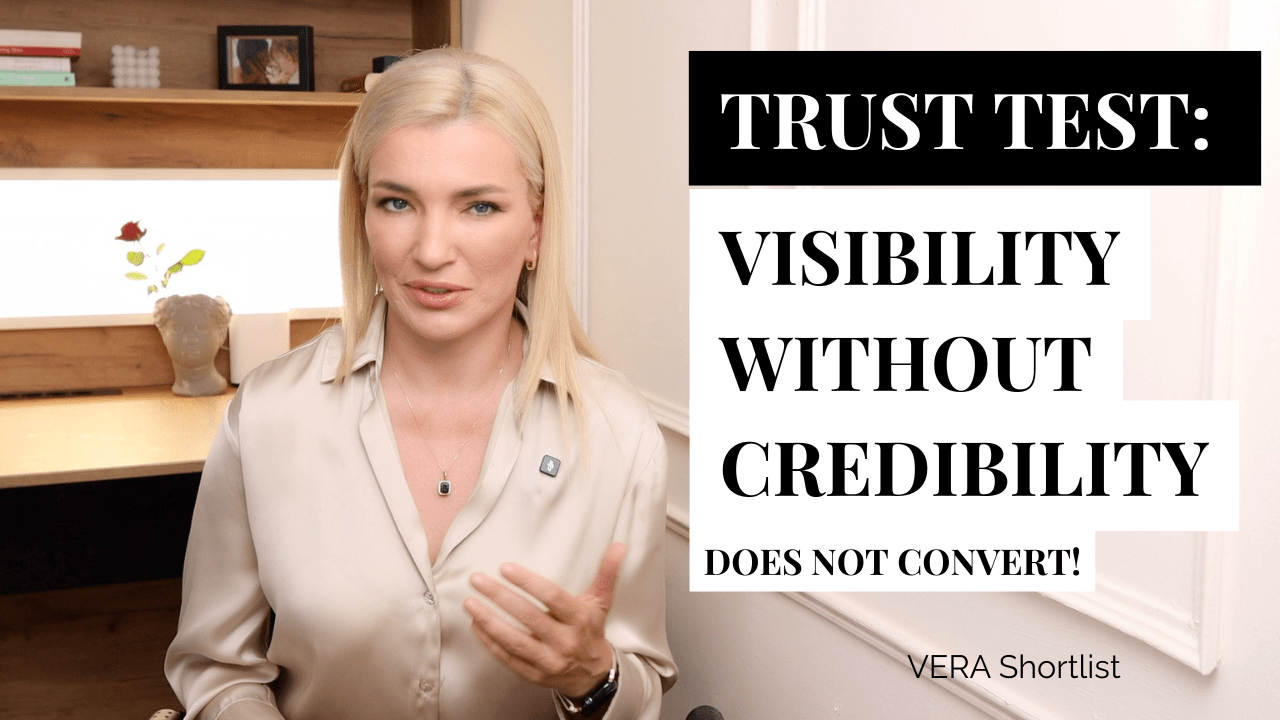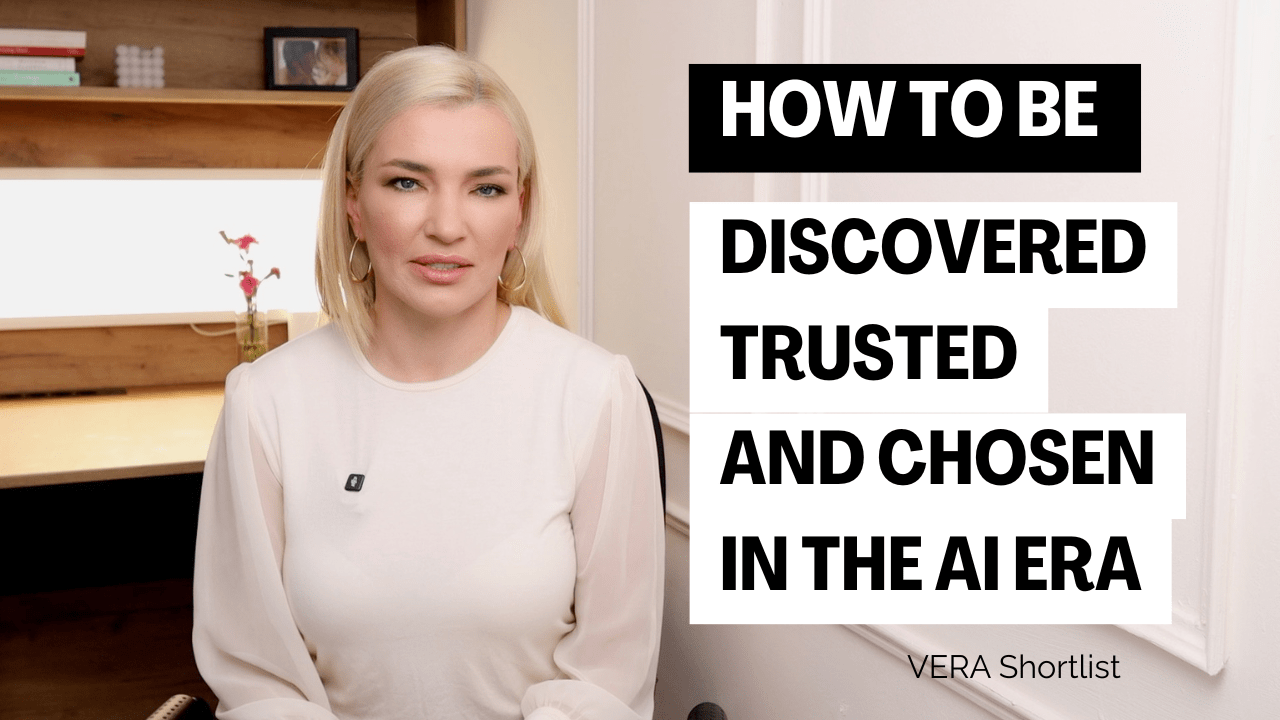The Future Is Fluid: Rethinking Agency Model for the AI era

In the first four episodes of The VERA Shortlist, we examined how brands must be structured for both machines and humans, how personal branding builds credibility, why visibility alone falls short, and how to capture attention in a content-saturated world. The next question naturally arises: Who makes all this possible? In today’s fast-changing landscape, fixed, one-size-fits-all teams no longer enough. At VERA, we believe in working with experts who combine deep skill in their specialty with a wide-range understanding of adjacent fields, as well as in assembling flexible teams tailored to each project’s unique needs. As McKinsey’s Future of Work research shows, 74% of executives say cross-functional expertise is critical for innovation.This idea underpins also our approach to building teams that innovate and respond quickly to new challenges.
1. Why Deep-and-Broad Expertise Matters
Experts today must bring both depth in a core discipline (e.g., brand storytelling, UX design, data analysis) and enough familiarity with related areas (e.g., AI capabilities, emotional design, market trends) to make informed judgments. This combination allows them to know when to let AI streamline structure and when to preserve the human nuance that gives content its soul. Harvard Business School highlights that experts must blend emotional intelligence with AI literacy, meaning professionals should understand AI tools well enough to use them wisely, yet never at the expense of authenticity.
At VERA, we encourage team members to cultivate deep mastery in their specialty while also exploring adjacent domains. For example, a copywriter may develop skills in SEO and AI prompting; a designer stays aware of emerging platforms and human-centered design principles. This broad awareness ensures that when crafting content or campaigns, they see connections others might miss: balancing technical optimization with genuine storytelling. Such professionals recognize where AI assists and where it risks flattening nuance, delivering work that both machines can index and humans feel.
Moreover, individuals with this blend of depth and breadth collaborate more effectively. When forming a team for a client, each member’s wider perspective fosters smoother dialogue: they understand each other’s language and respect different viewpoints. McKinsey’s finding on cross-functional expertise driving innovation is reflected in practice: teams whose members connect dots across disciplines generate more creative solutions and adapt faster when needs shift.
Finally, as AI and market conditions evolve, experts with broad understanding adapt more readily. They see how new tools or trends intersect with their core skill and make better calls on whether to adopt or wait. At VERA, we strive to work with experts who invest in continuous learning:workshops on AI tools, emotional storytelling, trend analysis, and collaborative exercises, so they deepen their craft and widen their perspective, preserving the human spark in everything we deliver.
2. Assembling Flexible, Project-Specific Teams
Even with the right kind of experts, a static roster cannot meet every project’s nuance. The flexible-team model selects the precise mix of specialists for each engagement, rather than relying on the same group every time. For instance, if a brand requires guerrilla marketing, we may have several trusted guerrilla experts in mind and then choose the one whose style, experience, and instincts best match that client’s personality and objectives. In the attention economy, extraordinary ideas stand out; this tailored selection helps deliver that edge.
Research supports this approach: agencies with modular team models report 31% higher client satisfaction (Accenture Agency Future Report). Clients benefit from having exactly the right expertise at the right time, avoiding both under- and over-staffing. Sometimes a project only needs a lean pair:a strategist plus a specialist in short-form video scripts. Other times, a broader lineup:data analyst, UX researcher, creative director, specialized writer is called for. Deloitte finds that personalized service models increase long-term brand trust by 44% because clients feel understood and supported by teams built around their specific needs.
Within VERA’s model, a core strategic lead maintains continuity, ensuring each flexible team aligns with the overarching vision and brand direction. This balance:fixed strategic leadership plus rotating specialists preserves clarity: tactics and voices adjust per project, while the brand’s essence remains consistent. Accenture’s data on modular teams’ higher satisfaction reflects this benefit: clients enjoy agility without sacrificing coherence.
Operationally, flexible teams require a vetted network of experts. We cultivate relationships with senior professionals who share our values:those who understand how to blend AI assistance and human insight. Forbes research notes that professionals combining deep skill with broader awareness improve adaptability by 37% . At VERA, we track each specialist’s past performance and cultural fit so that when a new brief arrives, we can quickly assemble a team whose strengths align precisely with the challenge.
3. Balancing AI and the Human Touch in Teams
Across prior episodes, we emphasized balancing machine-readability with human depth. In building flexible teams, we select people who know AI’s strengths:structuring content, speeding drafts, analyzing data…but also recognize its limits in emotional nuance. Harvard Business School’s guidance to blend emotional intelligence with AI literacy applies: specialists learn to prompt AI effectively yet infuse outputs with authentic insight.
For example, a writer on a project might use AI to generate an outline consistent with brand tone, then layer in personal anecdotes or reflections unique to the client. A designer may leverage AI tools for initial concept sketches but refine visuals to evoke emotion and fit brand personality. Each expert’s broader awareness ensures that AI is applied where it accelerates work and human judgment prevails where nuance matters:producing content that machines can index and people remember.
Flexible teams also allow swift adaptation as new AI capabilities or platforms emerge. If a campaign calls for immersive formats, we bring in someone experienced in that medium. Meanwhile, we ensure the human element remains central: every piece features genuine stories, real voices, and emotional resonance. This duality:machine-friendly structure plus human authenticity anchors our work and wins attention in a noisy landscape.
3. How VERA Embodies Integrated Expertise
VERA implements this approach in its core – as founder with backgrounds in law, economics, and communication strategy, Dženeta Schitton has navigated diverse fields and seen firsthand how connecting disciplines builds stronger outcomes. This multi-faceted perspective guides how we organize teams: we seek professionals who, like me, bring deep mastery in one area yet understand related domains enough to bridge gaps. When communication work ties into legal or financial considerations, our own blended expertise ensures we spot nuances others might miss.
This integrated mindset matters because companies today face complex, interwoven challenges. A campaign may need messaging that aligns with regulatory realities, market dynamics, and emotional resonance simultaneously. By embodying this model internally, we demonstrate its power: our teams can advise on strategy from multiple angles, anticipate potential pitfalls, and craft solutions that are legally sound, financially viable, and deeply human. Clients gain confidence knowing the agency itself practices the flexible, cross-disciplinary approach we advocate.
Moreover, Dženeta’s journey as a lawyer turned economist turned communication strategist illustrates why companies need such integrated expertise. When markets shift or AI tools emerge, understanding implications across domains:contracts, budgets and messaging is crucial. This breadth enables us to choose which tasks to automate, which to handle personally, and how to weave diverse insights into coherent strategies. By structuring VERA around these principles, we ensure clients benefit from a mirror of the model: flexible teams with both deep and broad insight, just as we apply to ourselves.
5. What This Means for Clients
For clients, the deep-expertise + broad-insight and flexible-team model translates into bespoke support. They receive exactly the specialists needed for each project phase:no wasted hours on irrelevant skills. Deloitte’s finding that personalized service models boost trust by 44% resonates: clients feel truly seen and benefit from targeted expertise rather than generic solutions.
Agility is another benefit: as market conditions, AI tools, or audience behavior shift, we reconfigure teams accordingly. If a trend demands a short-form video expert next week, we add that skill; if a deep research angle emerges later, we pivot seamlessly. This responsiveness is vital in the attention economy, where timely, relevant content captures and holds focus.
Clients also gain consistent strategic leadership: although the surrounding specialists vary, a core lead ensures all efforts align with the brand’s essence. This coherence satisfies both AI-driven discovery systems (which favor consistent signals) and human audiences (who crave familiar tone and trustworthiness). Accenture’s data on modular teams’ client satisfaction reflects how this combination of flexibility plus strategic continuity drives outcomes.
Ultimately, clients benefit from clarity over noise. Flexible teams of experts who know when to automate and when to humanize avoid generic outputs and deliver content, campaigns, and strategies that genuinely resonate. In 2025’s fast-paced environment, clarity moves fast: bespoke teams give clients the talent mix needed to respond quickly with authentic, impactful communication.
5. Cultivating and Partnering with the Right Experts
To support this model, VERA invests in building a network of specialists who combine deep mastery in their craft with curiosity about adjacent fields. Who invest in continuous learning on AI tools, emotional storytelling, trend analysis, and cross-disciplinary collaboration. This ensures each expert can judge when AI should aid structure and when human insight must prevail. Research shows professionals with deep skills and broad awareness improve adaptability significantly. We see this daily in our network: they know which tasks to delegate to AI and which require human nuance.
Equally important is fostering a culture where experts feel comfortable saying, “This project isn’t my core strength but I know who would excel.” Such humility and networked mindset let us assemble the ideal team for each brief. It signals to clients that we prioritize the best outcome over internal convenience. In the attention economy, human creativity and precise instincts distinguish memorable campaigns; this freedom to choose the right specialists for every nuance is central to VERA’s approach.
Conclusion: Flexible Expertise for a Fast-Moving World
Episode 5 asks: Who does the work? The answer: professionals with deep expertise in their specialty and broad insight into related domains, assembled into flexible, project-specific teams. Fixed silos and one-size-fits-all rosters cannot keep pace with AI-driven change and the demands of the attention economy. By combining deep skill with cross-disciplinary awareness and custom-building teams per client need, we deliver communication and branding that machines understand and humans trust. Studies from McKinsey on cross-functional innovation to Accenture on modular teams, Harvard on emotional-AI balance to Deloitte on personalization confirm that this model drives satisfaction, trust, and results.
For clients, this means tailored teams, strategic continuity, rapid adaptability, and clarity in messaging that cuts through noise. At VERA, we embrace flexible expertise as the future because in a personalized world, every project deserves precisely the right people organized the right way. In 2025 and beyond, only this approach can craft the meaningful, authentic experiences that win attention, build trust, and drive impact.
Sources & Citations:
- McKinsey Future of Work Report: “74% of executives say cross-functional expertise is critical for innovation.” mckinsey.com
- Harvard Business School Working Knowledge: “Experts must now blend emotional intelligence with AI literacy.” mckinsey.com
- Accenture Agency Future Report: “Agencies with modular team models report 31% higher client satisfaction.” mckinsey.de
- Nielsen Creative Effectiveness Study: “Creativity aligned with context drives 53% more engagement.” mckinsey.com
- Deloitte Human Experience Report: “Personalized service models increase long-term brand trust by 44%.” mckinsey.com
- Forbes Future Skills Survey: “Professionals combining deep expertise with broad awareness improve adaptability by 37%.”



